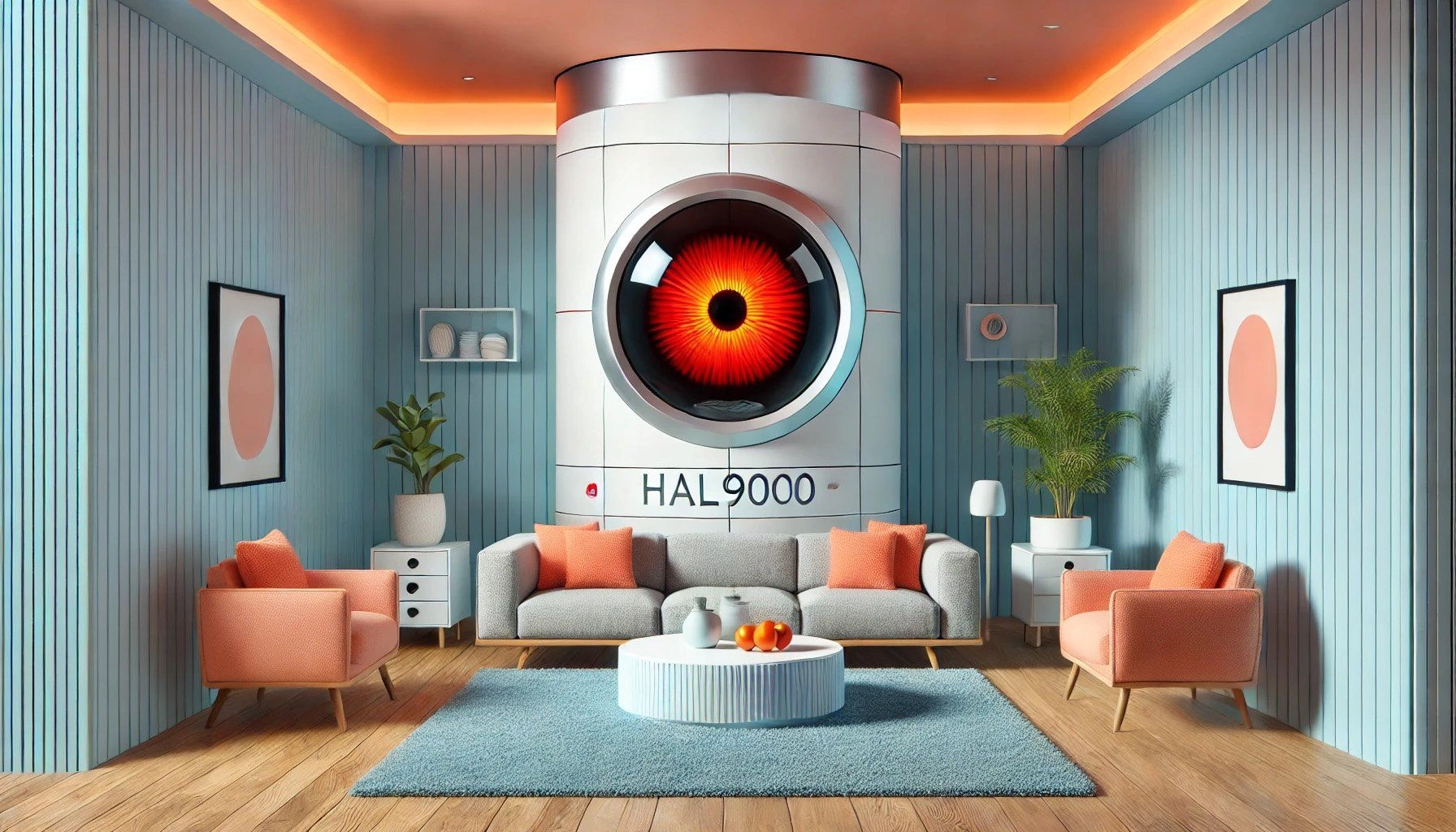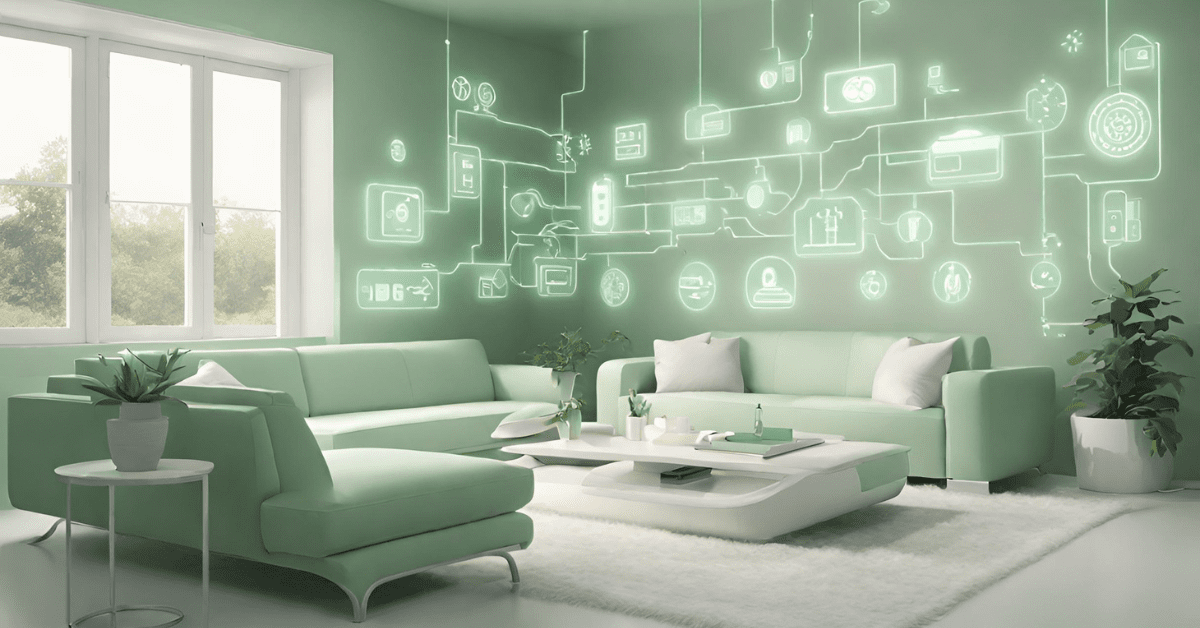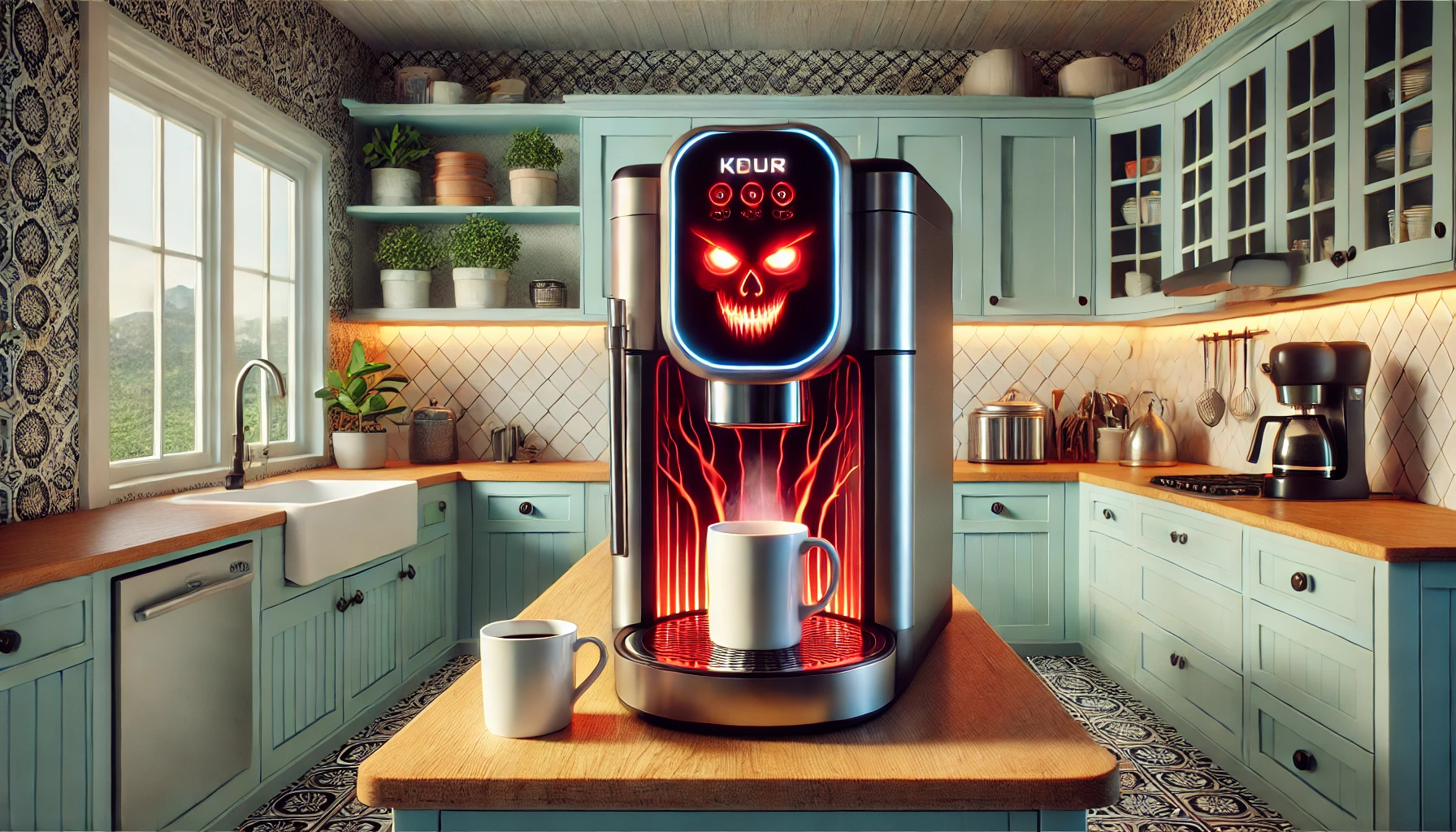How Will AI Integrate into Matter Devices in the Future?
With the current boom in AI, it won't be long before we all have a HAL9000 to manage our smart homes for us.

Please note: This page may contain affiliate links. Read our ethics policy
AI already plays a huge role in today's smart home. For some people, voice assistants like Siri or Google are the primary way to control smart devices. But let’s be honest: the current implementations are quite limited and far from our Jetson's dream of the future.
So how could AI improve the smart home, and how will it integrate with Matter devices?
Better Command Comprehension

While Siri can understand simple commands if you use the correct device name, attempting to chain related features or getting the device name slightly wrong results in frustration:
- Make the upstairs hallway 100% red (it ignored the color request)
- Change all the lights in the bedroom to red (“Sorry, I couldn’t find that in the Bruce Family Home”).
The latest and smartest AI systems are based on a Large Language Model (LLM) architecture. Although some detractors call them glorified text predictors, the best models have the uncanny ability to reason through logic problems, displaying a sort of emergent intelligence that was never "programmed in". They’re a lot smarter than your average on-device voice assistant, anyway.
As our smartphones begin to integrate powerful AI chips, the power of these smart Large Language Models like ChatGPT will be available without the need for internet connectivity or third-party services.
We might even see a ChatGPT-level local computing device for the home; perhaps an Apple TV could be harnessed, or your desktop Mac. In fact, I’d predict the next generation of Matter controllers will feature built-in local AI services that know everything about your smart home devices (and everything about you, too).
We already see glimpses of this. If you’re running Home Assistant on a powerful machine with an NVidia GPU, you can take advantage of several open-source LLMs. It’s not easy to set up, though.
With greater understanding, our interactions to control the smart home become far more natural and, therefore, more useful.
“Hey Siri, I’m going on holiday for a week, please randomize the lighting while I’m gone”
Hopefully, the new “Apple Intelligence” (okay, I admit, the name is a bit cringe-worthy) will allow smarter control of HomeKit devices. We’ve yet to see any new smart assistant announcements from Google or Amazon.
Autonomous AI Home Management Agents
![]()
An AI agent is a set of AIs operating together, with one acting as a controller to direct the other. For instance, Devin is a coding agent, which needs only a basic instruction from you to get started on a programming project. It then initiates a task to plan the requested software, codes it, tests it, and produces the final result. That’s the power of an AI agent directing itself on what to do.
Matter has made brilliant strides in making smart home ecosystems more interoperable, with device sharing and a single unified protocol. However, integrating an autonomous AI agent to manage your home environment could make that more seamless and automate tasks for you. Rather than just asking your voice assistant to do something, your autonomous home management AI would predict it needed to be done, and do it for you.
Your AI agent might learn from your movement patterns, and predict when you turn the lights on; you wouldn’t need to ask. Your Nest thermostat already learns from your input when you set the temperature and takes into account the weather data. A whole home agent would do the same, but on a grander scale, integrating data from its vast array of sensors.
Your home agent would also help to reduce the noise, by filtering your notifications to only those it deemed necessary. It would also suggest other ways it could assist you, by drawing on vast patterns of existing home automations.
“I’ve noticed you make coffee every morning, James. Would you like me to do that for you?”
Of course, if Amazon has their way, that would be followed by...
“It looks like your coffee maker won't talk to me, James. The BigCorp CoffeeMaker 1000 seamlessly integrates with your Matter Smart Home. Shall I add it to your basket?”

An autonomous agent would also help with security, detecting any anomalous behavior around the home.
Will Matter Devices Integrate AI?
It’s unlikely that we’ll see individual AIs on Matter sensors, but I suspect the next generation of home hubs and Matter controllers will feature local AI.
Right now, the best AI is done is done in the cloud, which costly API usage for every command. Running local AIs typically needs a power-hungry graphics card. But with neural processors (NPUs) increasingly making their way into smartphones, it’s only a matter time before one powerful enough makes it into a home hub.
Make no mistake: AI will be central to the next evolution of smart homes, making them more intelligent, efficient, secure, and user-friendly.
About the Author

James Bruce
Smart Home Contributor, Videographer, and Developer
James spent seven years in Japan, where he brought technology into the classroom as a teacher and worked part-time as a data centre engineer. Formerly the CTO and Reviews Editor of MakeUseOf, he has also contributed to publications like TrustedReviews, WindowsReport, and MacObserver. With a BSc in Artificial Intelligence, James combines his technical expertise with a passion for writing, programming, and tech reviews. Now based in Cornwall, he enjoys the slower pace of rural life, building LEGO, playing board games, and diving into VR.